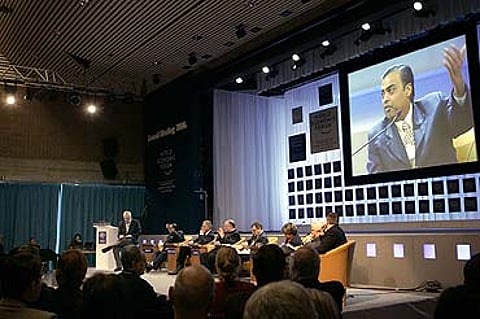O
n the day following Bombay's July 11 terrorist attacks, I was having lunch inWashington with the editor of a respected centre-left American magazine. That morningIsrael had begun its aerial bombardment of Lebanon. "Do you think Hezbollah carriedout the Mumbai train attacks?" the editor asked me.I mention this not to mock my lunch companion, who is a subtle and intelligent observer ofthe US domestic scene, but to illustrate two points about America's intelligentsia. First,most of America's opinion-shapers see all Muslim terrorist groups (although some more thanothers) as participating in a united global jehad against "us"—and thatincludes India nowadays. And second, they don't have much of a clue about India (orHezbollah for that matter).
Which brings me to the point of this article: India, as many Indians have correctlyobserved, occupies a lot more American mindspace than it used to. But, so far, India doesnot—as some Indians incorrectly believe—occupy a prominent share of America'sthoughts, or even those of its foreign policy elites.
The second observation also came as a surprise to me. I left Delhi last February, havingspent most of the previous five years as the Financial Times' South Asia correspondent,to move to Washington DC, where I am now the FT's bureau chief. I came fullyexpecting that India would frequently enter the conversations and calculations of thepoliticians, lobbyists, journalists and think-tankers that dominate this town. That isstill very far from being the case.
Even when George W. Bush made his brief visit to Delhi in early March to conclude thenuclear deal with Manmohan Singh, the event only hit America's front pages for one day andeven then it was a page one story of only two US newspapers and not their main stories ofthe day. In late July, the US House of Representatives voted in favour of the Indianuclear deal. This very significant moment was buried obscurely inside a couple of papersand was overlooked entirely by the main broadcast networks.
Perhaps people will take more notice when the US Senate votes on the bill later this yearbecause only then will it acquire the force of law (assuming the Senate approves of it).But I doubt it. There are a couple of points underlying this observation.
First, if you think India is self-obsessed, then you haven't visited America recently.What happens in the rest of the world usually merits the attention of Capitol Hill and theUS media only if it is directly related to America's current domestic agenda.
Given just how paranoid many Americans have become about the "global jehad"against their country, this can span a dizzying multitude of terrorist events in all sortsof unrelated places, from Moldova to Manila. But the local content of the attacks iseither downplayed or edited out altogether. The locale is then forgotten until there isanother incident that can be filtered through America's curiously introspective—andself-affirming—lens.
And second, Americans only really start paying sustained attention to a faraway countryafter the US has developed extensive trading and commercial ties with it. Without doubt,India has more extensive economic ties with the US than it did five or ten years ago. Butit is still only 22nd on the list of America's main trade partners, and even that flattersIndia's position.
For example, America exports more to Mexico every two weeks than it does to India everyyear. America's exports to India in 2005 were just over US $8 billion compared to $38billion to the UK and $41 billion to China. Total US exports in 2005 were $900 billion, ofwhich India's share amounted to less than one per cent.
Rightly or wrongly—and probably wrongly since trade patterns are sometimes a verypoor guide to a country's real foreign policy interests—the American establishmentonly sits up and takes notice of a country when it is either making or losing a lot ofmoney with it. India does not yet belong in that category (neither, incidentally, doesLebanon).
